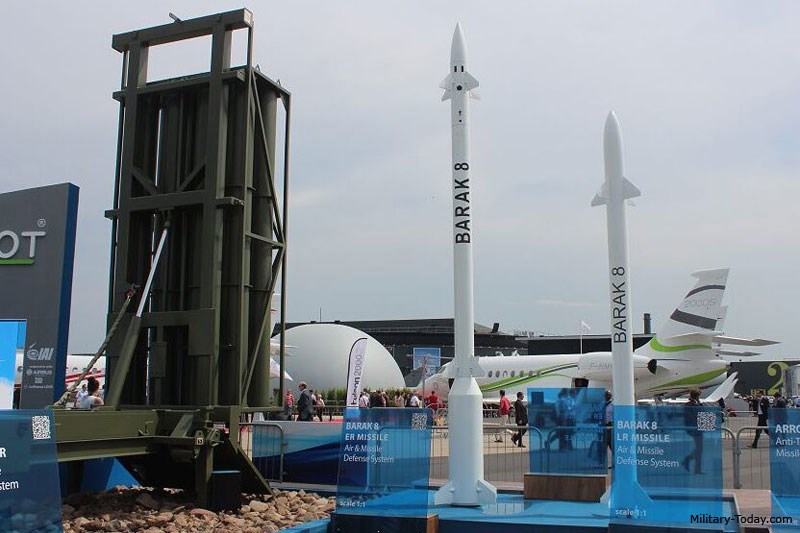Israeli-made Barak air defense system deployed for first time in UAE
In January, the UAE began asking the Israeli occupation quietly about its defense systems in the wake of retaliatory strikes by the Yemenis against Abu Dhabi.
-

Barak 8 Missiles on display
BreakingDefense reported on Wednesday that the UAE had obtained a version of the Israeli-made Barak air defense system via contract.
According to Breaking Defense sources, possibly from "Tel Aviv", since the article was published there, this could open the door for further security contracts between the UAE and "Israel".
According to one of the sources, "This is going to be a very big contract," as the Emiratis need a large number [of systems] to protect some of their "sensitive sites that have been hit again and again" by missiles launched by the Sanaa forces in Yemen.
In January, the agency reported that the UAE had quietly reached out to the Israeli occupation after a drone-and-missile attack by the Yemenis hit sites in the UAE, including the international airport in Abu Dhabi.
Following the attack, security officials in "Israel" expressed their concern about the Yemeni drone's response that targeted the depth of the UAE in response to its participation in the Saudi-led war on Yemen.
Citing Reuters, the report says that UAE and "Israel" struck a security deal last month but mentioned a different Israeli air defense system.
So far, it is unknown which version of the Barack has been deployed since Israeli Aerospace Industries manufactures different kinds of systems based on the original Barak-8.
The Barak-8 missile defense system is jointly developed by IAI, India’s Defense Research & Development Organisation (DRDO), "Israel’s" Directorate of Research and Development (DDR&D), Elta Systems, and Rafael Advanced Defense Systems.
"According to IAI, the system is a kinetic defense system designed to defend against a range of aerial threats in day and night and all-weather conditions. The Barak-MX can be used with a handful of different interceptors with ranges from 35 kilometers (about 20 miles) to 150 kilometers (about 90 miles)."
It was originally designed to be a ship-borne system but was later upgraded to work for land forces.
The report adds that Morocco could have potentially recently bought one version of the missile, the Barak-MX.
The report concludes with the remark that the sighing of the normalization agreements between Morocco, the UAE, and Bahrain on one hand, and the Israeli occupation regime entity on the other, had brought new potential customers, with profits amounting to over $3 billion dollars.
See this: Arab states among "Israel's" critical customers in the region for weapons
The relationship between "Israel" and the normalizing Arab states may appear based on trust, but "Tel Aviv" remains wary regarding what they sell to its partners.
The main focus, for the time being, is on air defense systems; offering advanced offensive weapons is not on the table and is unlikely to be available anytime soon.
Within Israeli security industries, the biggest players are Rafael and Israel Aerospace Industries. The companies' officials declined to disclose information regarding the matter.

 3 Min Read
3 Min Read









